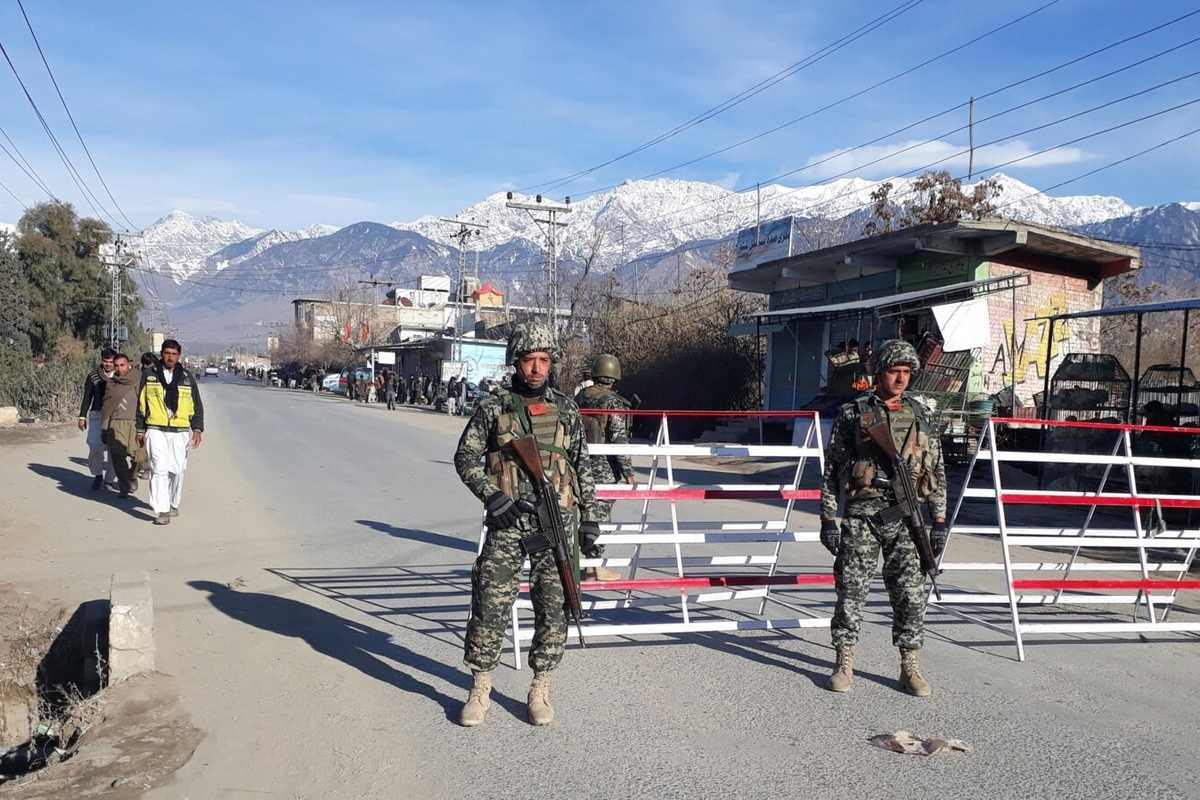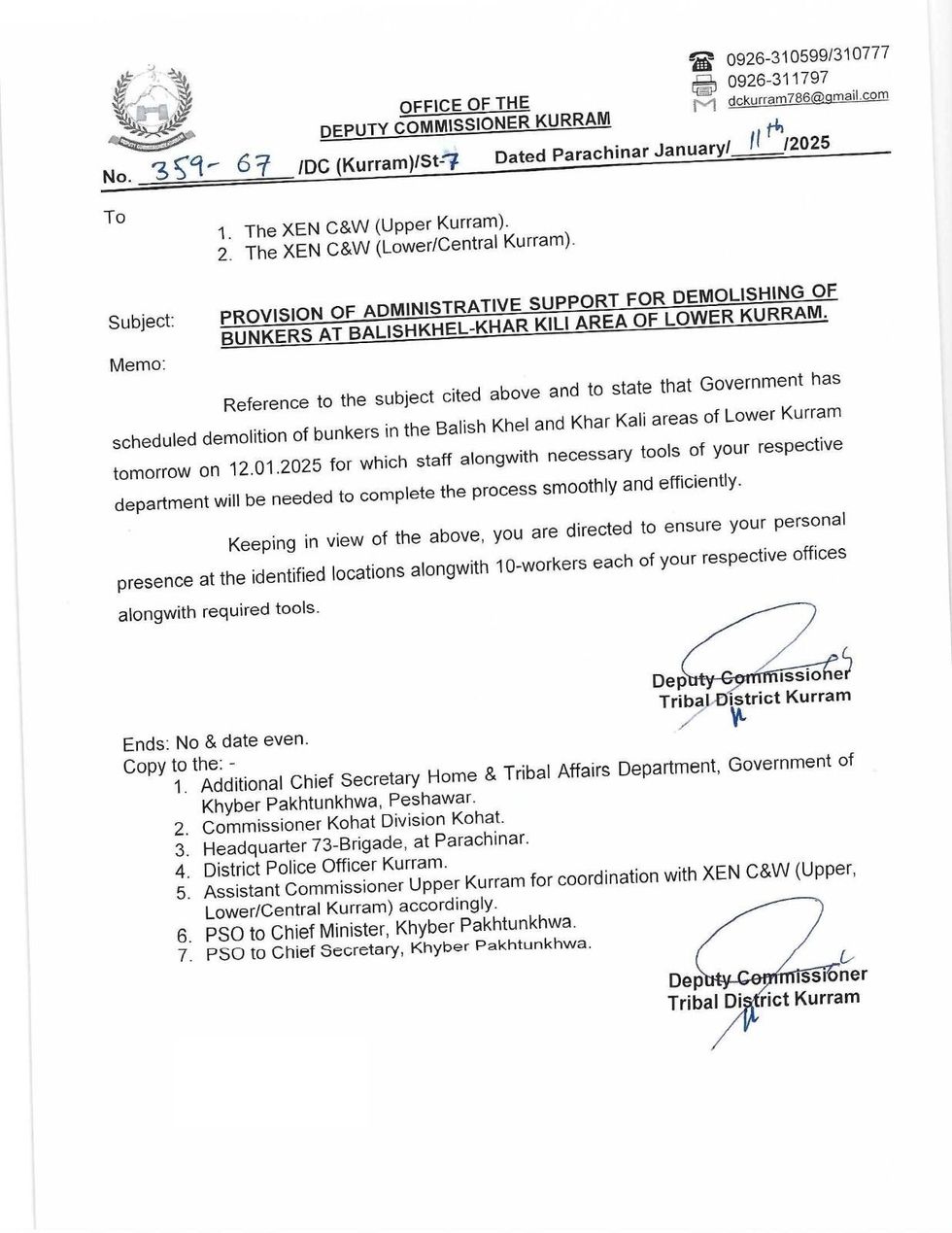Bunkers in two villages of Pakistan’s Kurram set for demolition today
Authorities plan to demolish bunkers in Khar Kali and Balish Khel today under apex committee's directive

Kamran Ali
Correspondent Nukta
Kamran Ali, a seasoned journalist from Khyber Pakhtunkhwa, Pakistan, has a decade of experience covering terrorism, human rights, politics, economy, climate change, culture, and sports. With an MS in Media Studies, he has worked across print, radio, TV, and digital media, producing investigative reports and co-hosting shows that highlight critical issues.

Authorities in Pakistan’s Kurram district are likely to begin demolishing bunkers in two villages on Sunday, following a government directive under the recent peace agreement.
According to a notification issued by the deputy commissioner’s office, bunkers in the Khar Kali and Balish Khel areas have been targeted for demolition. The executive engineer of the Communication and Works (C&W) Department, along with staff from upper, lower, and central Kurram, has been directed to be present for the operation.

“A meeting regarding the action is underway, and once a final decision is made, the demolition process will begin,” the DC office confirmed to Nukta.
The move is part of an apex committee decision mandating the removal of all bunkers across Kurram District by Feb. 1 to promote peace and stability in the region.
The development comes after aid convoys reached Parachinar, bringing relief to over 400,000 residents who have been cut off from essential supplies for nearly three months due to sectarian violence in the district.
The breakthrough came after successful negotiations between government officials and local residents. The Kurram Grand Jirga, with representation from local tribal elders, played a key role in mediating the agreement.
Crisis timeline
Situated strategically along the Afghanistan border, Kurram has long been a center of sectarian tensions between Sunni and Shia Muslims. Its complex tribal structure and history of militant activity have made achieving lasting peace a persistent challenge.
By December, the blockade had created severe shortages in Parachinar, with local health officials reporting 31 children had died due to medicine shortages. The crisis sparked nationwide protests, particularly from Pakistan's Shia community.
On December 20, the provincial apex committee on security gave both sides 15 days to sign an agreement, mandating the removal of all private bunkers and weapons to restore normalcy in the district.
On January 1, 2025, the Kurram Grand Jirga finalized a peace agreement with key stakeholders signing a 14-point accord, though some stakeholders refused to sign. The agreement included provisions for resolving land disputes, rehabilitating displaced residents, collecting weapons, dismantling bunkers, and enforcing strict action against hate speech.
Following the peace accord, the government announced the reopening of roads. However, before the main convoy could depart for Parachinar, the situation deteriorated when Deputy Commissioner Javedullah Mehsud's convoy was attacked in Bagan on January 4, leaving seven injured including the ex-DC.







Comments
See what people are discussing